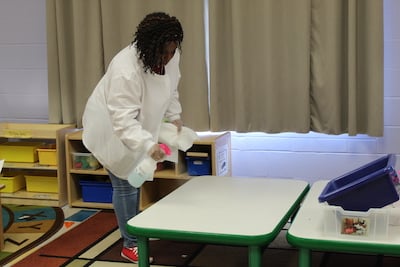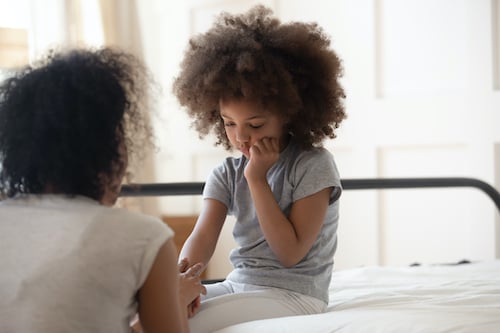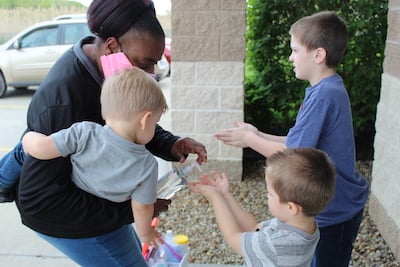Whether your child is in kindergarten or middle school, they may have questions about what’s happening with the new coronavirus (COVID-19). And as a parent or guardian, you may be wondering what the best way is to talk to your child about the virus. 
Here are a few ways to talk with your child about COVID-19.
Learn what your child already knows. They may know a lot about the virus, or they may just know that they just don’t have school. Whatever the case, that gives you a place to start. To get your child talking, ask if they’ve heard people talking about the sickness going around (if they’re younger) or if they’re older, you can ask if they’ve heard about the coronavirus.
Share age-appropriate information. If your children are young, it may make sense to simply tell them this new virus is similar to a flu bug. If your child is older, they may understand more in-depth information about quarantine and other safety measures.
Be aware of how you share information: Children can pick up on an adult’s anxieties. They can pick up cues on your conversations and your conversations with others, according to the CDC.
Reiterate their safety: With the closure of schools and businesses and the restrictions on many activities, your child might feel anxious or afraid about what’s going on around them. Ask your child about their fears and explain there are a lot of adults working hard to ensure everyone stays safe and healthy. Younger children might be comforted to know that doctors and nurses are ready to take care of those who become sick, while older children may be comforted to know that scientists are working on treatment methods and a vaccine.
Explain what they can do: Oftentimes anxiety arises from a sense of loss of control, and though there is a lot that is out of our control during COVID-19, there are a lot of things we can do to reduce our risk of getting sick. Explain to your child they have the power to keep themselves and others safe and healthy by washing their hands, properly covering their coughs and practicing social distancing.
Make yourself available to talk: As the situation progresses, your child might have new anxieties or questions. Let your child know you’re there to answer their questions.
Be aware of how your child gets information: News can be helpful for staying informed, but consuming too much of it can heighten anxieties. Social media can also increase fears and be a source of misinformation. Consider reducing your child’s screen time and be aware of the news you consume — be it on television or radio — in the presence of your child.
For more information about talking to your child about coronavirus, here are some tips from the CDC.







